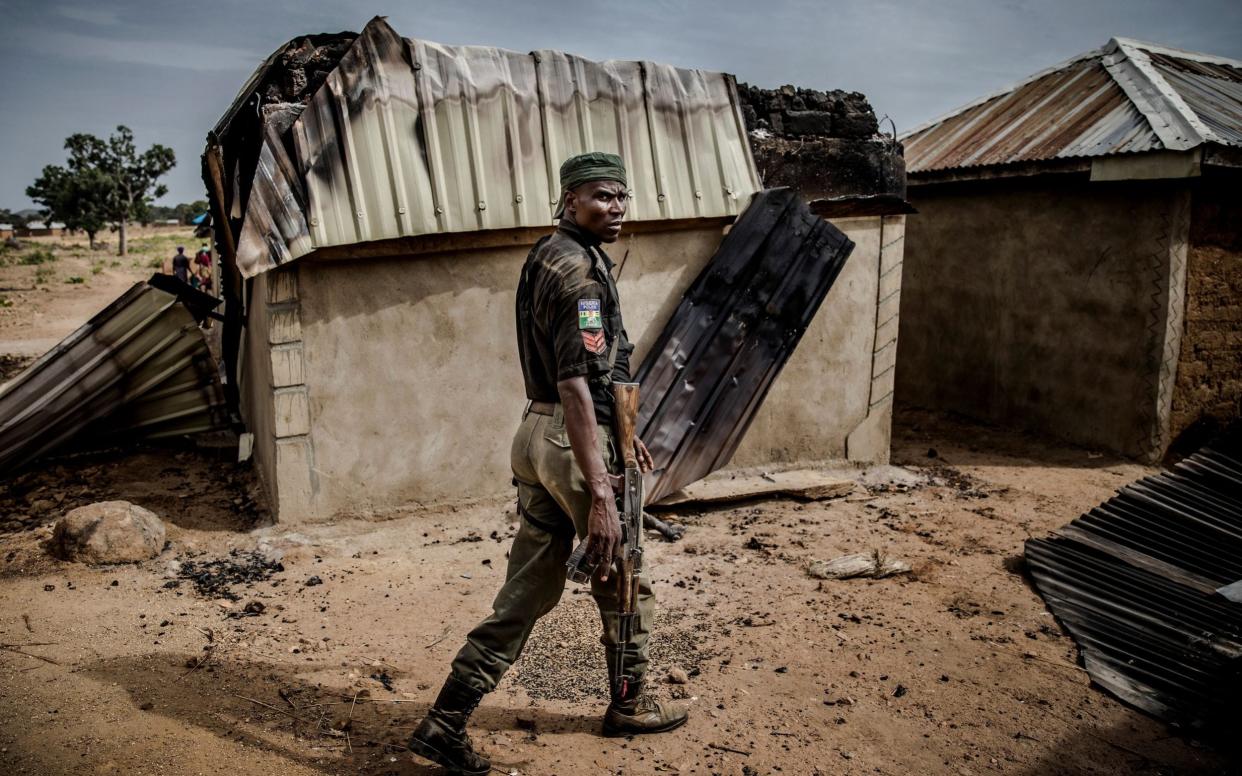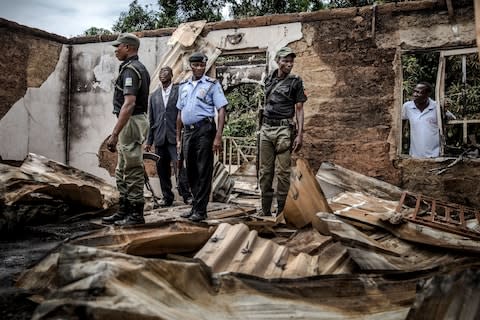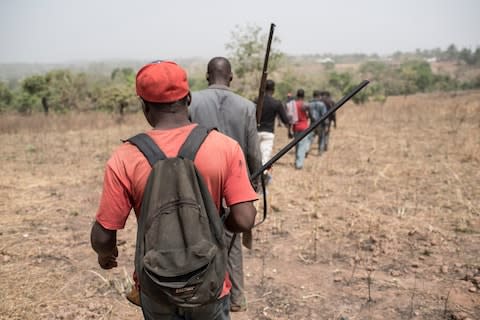How weapons smuggled by Turkish criminals is fuelling a deadly herder-farmer conflict in the Sahel

A criminal gang operating out of Turkey has fuelled one of West Africa's deadliest conflicts by smuggling in vast amounts of high-powered pump action shotguns, a study by arm control experts has found.
The gangsters have smuggled thousands of the weapons into Nigeria, where they have ended up being used in the escalating violence between nomadic herders and settled farmers in the country's north and central belts.
Since 2014, more than 3,600 people have died and more than 300,000 been forced to flee their homes. The British charity Conflict Armament Research has now done a detailed study of 148 weapons seized by security forces during the conflict.
While some appear to have been stolen from Nigerian security forces or from stockpiles looted during Libya's civil war, ten of the 148 weapons were shotguns brought in by a smuggling network operating between ports in Istanbul and Lagos.

The shotguns, imported in at least four consignments and totalling more than 2,500, were concealed in shipping containers billed variously as carrying steel doors and washbasins.
"This is a major organised trafficking route involving actors who are based in both Nigeria and Turkey," the report said. "Major European shipping companies have unwittingly transferred large-scale weapon shipments orchestrated by these traffickers."
The seizure of the weapons highlights the vulnerability of West Africa and the Sahel region to weapons smugglers. While Nigerian customs officials have upped their efforts in recent years, the country's borders remain porous.
The charity's researchers also found a number of 30-year-old Iraqi assault rifles similar to ones used in attacks by the Macina Liberation Front, an al-Qaeda-affiliated jihadist group operating in Mali.
The weapons all had their serial numbers erased in the same way, indicating that the same illegal supplier was operating in both countries.

The study further identified three Polish-made AK-47s that were part of batches sold during the Cold War to Colonel Muammar Gaddafi in Libya.
Weapons of the same specification have also turned up in Burkina Faso, Mali, Niger, the Central African Republic and Niger, indicating how stockpiles looted by Libyan rebel groups after Gaddafi's fall have now spread all over the region.
The flood of Libyan weapons across west Africa is widely believed to be a factor in the upsurge in jihadist violence in the Sahel. Nigeria's president Muhammadu Buhari has also blamed it for the escalating death toll between farmers and herders.
The tensions between the farmers and herders run largely along tribal and religious lines, pitting mainly settled Christian farmers against Muslim Fulani herdsmen in competition over land.

In recent years, droughts have driven the herdsmen to move their cattle further south into more fertile land populated by the farmers, sparking tit-for-tat attacks between the two groups in which scores of people have been killed at a time.
While the fighting is more about land and tribal identity than religion, it is feared that Muslim groups like Boko Haram are attempting to exploit it. Many of the weapons used in the conflict thus far are simple home-made guns produced by local blacksmiths.
The pump-action shotguns, which are currently banned for civilian use in Nigeria, are a worrying addition to the conflict, as like Kalashnikovs, they can be used for repeat fire and require little expert marksmanship.
Others have been found in the hands of criminal gangs and kidnap groups across the country, with Nigerian officials blaming them for a spike in crime rates. Five Nigerian men are currently on trial in Lagos over a shipment of 661 Turkish-supplied shotguns that were found in a 40-foot container marked "steel doors" in January 2017.

The defendants are accused of paying bribes of about 1.5m Naira (£3,100) to port officials to avoid a thorough check of the container.
However, a vigilant customs officer stopped the container as it was being driven away on a lorry and refused a bribe several times that size to turn a blind eye.
Despite the arrests, further shipments from Turkey have come through. In May 2017, port authorities in Lagos found another Turkish-shipped container with 440 shotguns – this time declared as supplies of plaster of Paris. Investigations are still ongoing to identify players at the Turkish end of the network.
Commenting on the findings, CAR’s Head of Regional Operations in West Africa, Claudio Gramizzi, said the arms flows showed that fighting between herder and farmer communities in Nigeria was "not simply a local affair".
He added: "These weapons are coming partly from beyond Nigeria’s borders. Preventing their rapid replacement requires efforts by law enforcement across the Sahel, as well as targeted interdiction of new arms being trafficked from Europe and Western Asia."
Protect yourself and your family by learning more about Global Health Security. And sign up to our weekly newsletter here.


